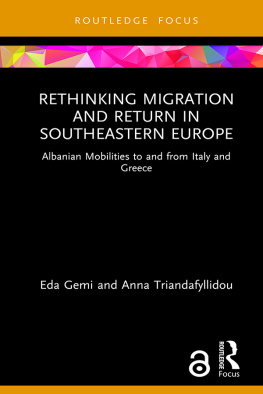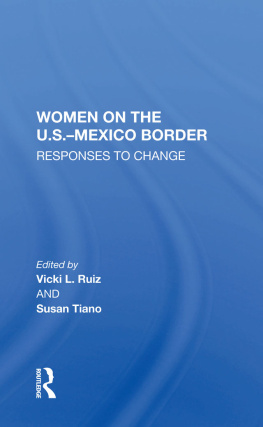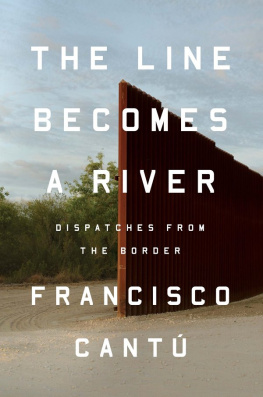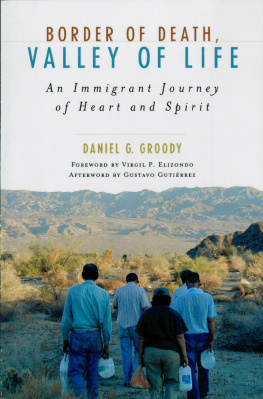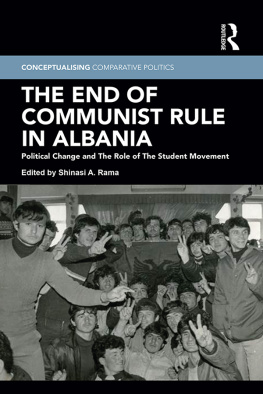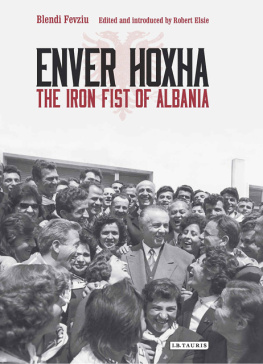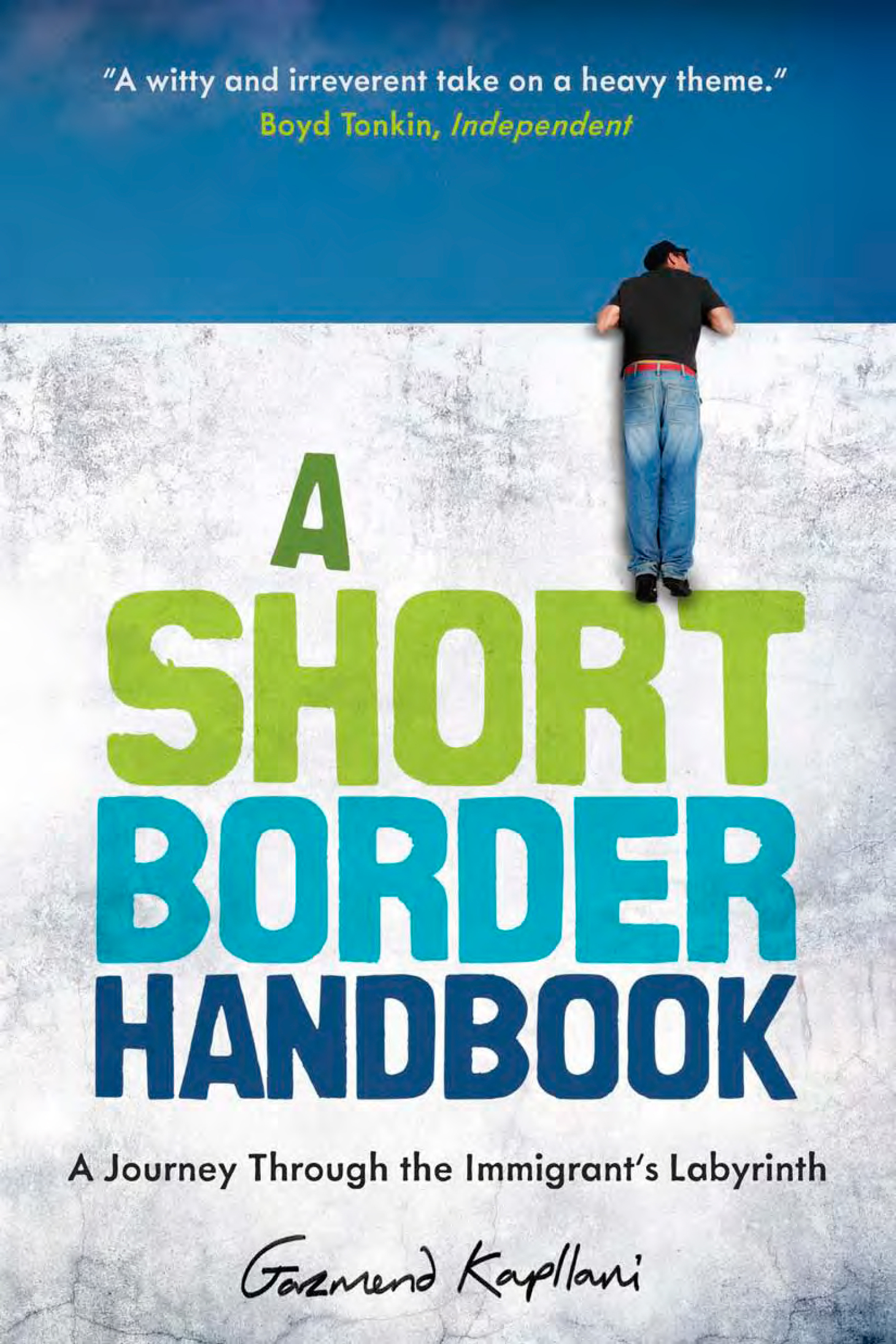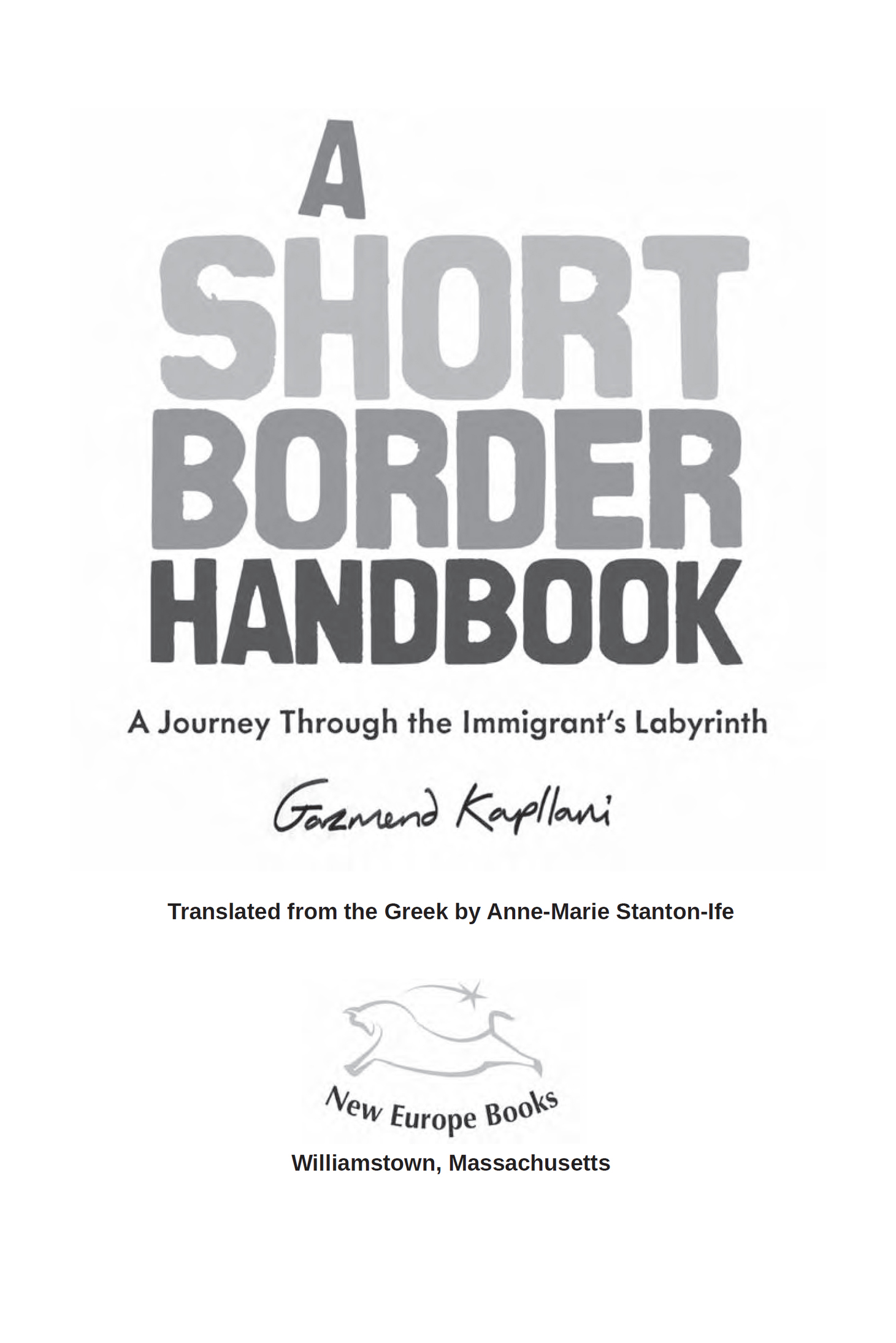Contents
Published by New Europe Books
Williamstown, Massachusetts
www.NewEuropeBooks.com
Copyright 2017 by Gazmend Kapllani
English translation 2017 by Anne-Marie Stanton-Ife
Interior design by Knowledge Publishing Services
Previously published in English in 2010 by Portobello Books Ltd,
Twelve Addison Avenue, Holland Park, London.
First published in Greece by Livanis Publishers.
This edition is published by arrangement with Ampi Margini Literary
Agency, London, www.ampimargini.com.
ALL RIGHTS RESERVED. No part of this book may be reproduced or transmitted in any form or by any means, electronic or mechanical, including photocopying and recording, or by any information storage or retrieval system, without written permission from the publisher except in the case of brief quotations in critical articles and reviews.
ISBN9780997316988
Ebook ISBN9780997316995
Cataloging-in-Publication Data is available from the Library of Congress.
First US edition
v4.1
a
For my mother, Qerime.
For my father, Myrteza.
For my brother, Artionil.
Contents
Prologue
I m not crazy about borders; I cant honestly say I hate them, either. Its just that they scare me, thats all, and I always feel uncomfortable when I get too close to one. Lets get something straight: Im talking about visible borders here, geographical borders, the ones that mark off one country from another, one state from another, one nation from another. Even today, as they become increasingly porous, whenever I cross one I get a very strange feeling, a mixture of deliverance and perplexity. Perhaps its because of my passport. Ive got used to that suspicious look they give me. I return it with one of longing, and impatience to get to the other side; but its no use, its almost invariably met with hostility and suspicion. I do try to reassure them, try to persuade them that I represent no danger of any kind, but there always seems to be some pretext or other for rebuffing me, some excuse for not treating me as an equal. This is why I say I suffer from Border Syndrome, and have done for a long time. Border Syndrome is a form of illness thats difficult to describe with precision. Unlike agoraphobia or depression, it doesnt feature on the list of recognized mental disorders. But what I can do, perhaps a little later, is outline some of the main symptoms. I do know that there are other sufferers, a great many of them. Those who have never experienced the urge to cross a border, or who have never experienced rejection at a border, will have a hard time understanding us.
My difficult relationship with borders goes back a very long way, back to my childhood, because whether or not you end up with Border Syndrome is largely a matter of luck: it depends on where youre born.
I was born in Albania.
R eaching, never mind crossing, the borders of a country under a totalitarian regime like Albania was, until 1991, the equivalent of a miracleor a mortal sin. Exit visas were few and far between; those who got them were the lucky ones. The rest of us, most of us, that is, looked on the ones who got them as a breed apart, something along the lines of extraterrestrials. We were condemned to speculate endlessly about what lay on the other side of the borders. Either that or we would torture ourselves with the simple conclusion that life went on as normal, even on the other side.
Dismissing the possibility that there was life beyond the borders proved quite an effective survival strategy, spiritually as well as physically. At some point, in the subconscious of many of us, the world-beyond-the-borders became more than the continuation in time and space of some common world.
As the years went by, and Albanias isolation became absolute, the world-beyond-the-borders gradually assumed the status of a separate planet. For some people that planet was paradise, for others it was a place of terror. But for all that, another planet.
Why are you telling us all this?
You could ask the immigrant, Why are you telling us all this? The truth is, as an immigrant, especially a first-generation immigrant, your first instinct is to stay silent. Fear; caution; the violent escape, that violent first encounter with the unknown country; that feeling of being uninvited; resentment; longing for and rejection of home, and guilt and rage at the same time, all take root in the immigrant. An immigrant is a confused creature, highly insecure, and that is why he fears confession. All it takes is one gesture from the other side, one sign of denial, or indifference, of the Whats it to me where you come from and what youve been through? kind, for the immigrant to feel ridiculous, vulnerable, and freakish. Thats why he doesnt take risks. Instead, he digests his experiences in isolation and before long is convinced that they are of absolutely no interest to anyone. In the final analysis, he thinks: I wasnt made for telling stories, but to fight tooth and nail for my survival. Its not that people cant understand; they just dont want to.
The alternative, baring all and confessing, is risky. Telling his life story, the painful and contradictory journey of an immigrant. But, if he keeps it all bottled up inside, he is in danger of becoming neurotic and resentful. The most he can hope for is that they will understand, first him, and then all those who cannot speak, who dont know how to speak, who dont have the courage to speak and who bury their narratives deep inside themselves instead. You cannot understand an immigrant if you havent heard his story first.
T he regime did everything in its power to block all images from the other side of the border by means of controls, arrests, and punishments. I can still rememberI was in the second year of primary school at the timethe day the schools Party secretary walked into our classroom and, among other things, asked us in a ponderous voice (which, with monumental exertion, she tried to soften) if our parents watched anything apart from Albanian state television. With the naivet of a child wanting to impress his classmates, I stuck my hand up and duly announced that my parents enjoyed watching a channel called Savra. There was no such thing; Savra was the name of a village near our town, Lushnj. But I didnt know that. My father, alert to the dangers involved, dealt with my unfettered childish curiosity by feeding it with certain pseudonyms and code words for the foreign television stations he watched on the quiet. Ultimately, not even that could save him. That evening, he was summoned to the headmasters office and asked to account for this unknown television station. You could lose your job over something like thatand that was the least of it. He risked being accused of reactionary activities and of harboring petit bourgeois sympathies and risked being tried for disseminating antistate propaganda. After that, he could end up in one of those terrifying jails for political prisoners, or else be sent to one of those villages outside Lushnj that were full of exiles. Savra was the best known. The truth was that there were options at their disposal for finishing someone off. My father had to explain himself, and explain why, first of all, he did not restrict his viewing to Albanian state television, and why he moved around in wealthy capitalist-imperialist-revisionist-Titoist-monarcho-fascist etc., etc. circles. Secondly, he was required to account for his choice of pseudonym. Why Savra? Did this imply indirect yet unambiguous sympathy for the enemies of the state exiled in that village? He answered flatly that he did not watch foreign television, adding that if they didnt believe him, they were welcome to come and inspect the antenna on his roof


